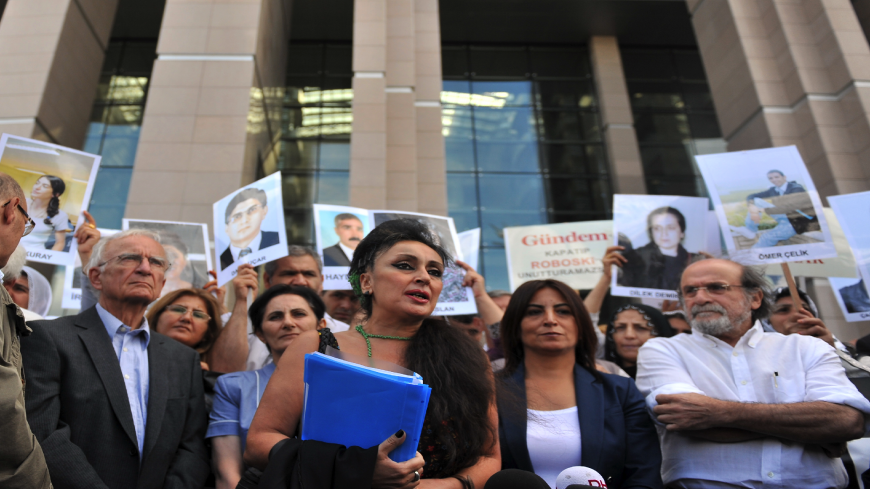Turkish exile faces fifth trial over deadly 1998 blast

An exiled Turkish dissident scholar went on trial in absentia in Istanbul on Friday over a deadly 1998 explosion, a charge she has been cleared of four times.
Pinar Selek, 51, is best known for her ground-breaking research on the Kurdish conflict in Turkey and her work with street children.
An avowed feminist and prolific author, Selek was first arrested in 1998 while studying Turkey's Kurdish community, which has faced decades of persecution.
She was accused of links to the outlawed Kurdistan Workers' Party (PKK), listed as a terror group by Turkey and its Western allies.
Selek had been interviewing PKK members to find out why they had chosen armed violence. She was jailed after refusing to divulge their names to the police.
She was eventually charged in connection with an explosion at Istanbul's popular spice market that killed seven people and injured dozens.
Selek was released in 2000 following the publication of a report blaming the blast on a gas leak.
But that was only the start of her legal problems, and there were more trials to follow in the highly controversial case.
She fled Turkey in 2008, settling in Germany before relocating to France, where she gained citizenship in 2017.
The presiding judge at Istanbul's main court took statements from defence lawyers and urged France to extradite Selek for the next hearing on September 29.
"It is up to the French authorities to implement this," the judge said.
- Turkey's longest case -
Speaking in Paris by videoconference, Seleck urged France to publicaly reject the Istanbul court's request.
"The (court) is putting the responsiblity on the shoulders of France and Europe by asking for my extradition," Selek said.
"France and other European countries must take a very firm position without waiting for things to get worse."
Although her court battles began before President Recep Tayyip Erdogan's rise to power two decades ago, Turkey today is under fire from human rights campaigners for jailing activists and political foes.
Selek has been acquitted four times by Turkish courts -- in 2006, 2008, 2011 and 2014 -- based on a lack of evidence that the Istanbul market blast was a bomb attack.
But each time, the supreme court has annulled her acquittal and ordered a retrial.
Turkey issued an international arrest warrant for Selek in January.
She faces life in prison without the possibility of parole, a sentence that could keep her from ever returning to Turkey.
Defence lawyer Martin Pradel called Selek's case unprecedented in Turkey's legal history.
"The case has been dragging on for 25 years and still the prosecution has been unable to obtain conviction," Pradel told AFP.
"A case has never lasted this long in Turkey."
PEN International, an organisation promoting freedom of expression, said Selek's prosecution was linked to her work as a sociologist focusing on minority rights.
It called on Turkish officials "to end their decades-long harassment of Selek and to unconditionally drop all charges against her".








